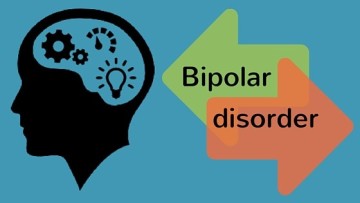- Home
- Editorial
- News
- Practice Guidelines
- Anesthesiology Guidelines
- Cancer Guidelines
- Cardiac Sciences Guidelines
- Critical Care Guidelines
- Dentistry Guidelines
- Dermatology Guidelines
- Diabetes and Endo Guidelines
- Diagnostics Guidelines
- ENT Guidelines
- Featured Practice Guidelines
- Gastroenterology Guidelines
- Geriatrics Guidelines
- Medicine Guidelines
- Nephrology Guidelines
- Neurosciences Guidelines
- Obs and Gynae Guidelines
- Ophthalmology Guidelines
- Orthopaedics Guidelines
- Paediatrics Guidelines
- Psychiatry Guidelines
- Pulmonology Guidelines
- Radiology Guidelines
- Surgery Guidelines
- Urology Guidelines
Bipolar Disorder Risky For Pregnant Women

Pregnant women with a history of bipolar disorder in the family or self have higher risk for developing postpartum psychosis, according to a new study.
Postpartum psychosis mostly stems from bipolar disorder and increases the risk for a mother harming or killing her baby or herself.
"This is a serious disorder and no one likes to treat women with medication during pregnancy or breastfeeding, but there is certainly a very high risk in not treating as well, such as the risk for suicide," said Katherine Wisner, Professor at Northwestern University, at Chicago, in the US.
Women with postpartum depression can have symptoms that may include fatigue, anxiety and often obsessional thoughts.
Another important finding from the study was that physicians must distinguish between different treatments for the two groups of women who develop postpartum psychosis those who have postpartum only episodes and those who have more chronic mood episodes throughout and after their pregnancy.
Women with more chronic bipolar disorder usually require medication throughout their pregnancy to remain well.
According to the study published in The American Journal of Psychiatry, Lithium is recommended as it is the most effective and fast-acting drug to treat postpartum psychosis.
"Awareness of the treatable disorder and diagnosing it can prevent tragedy, but because only one or two out of every 1,000 mothers are affected and the lack of research on the disorder, the diagnosis can be missed," Wisner added.

Disclaimer: This site is primarily intended for healthcare professionals. Any content/information on this website does not replace the advice of medical and/or health professionals and should not be construed as medical/diagnostic advice/endorsement or prescription. Use of this site is subject to our terms of use, privacy policy, advertisement policy. © 2020 Minerva Medical Treatment Pvt Ltd